A “Grand Ring” to Join Countries and People at Osaka Kansai Expo
Newsfrom Japan
Architecture Guide to Japan- English
- 日本語
- 简体字
- 繁體字
- Français
- Español
- العربية
- Русский
The Symbol of Osaka Expo
Just over half a year remains until Expo 2025 kicks off in Osaka. On September 13, a ceremony was held to mark the completion of the Grand Ring, a 2-kilometer wooden ring that encircles the Expo site on the artificial island of Yumeshima in Osaka’s Konohana-ku. In attendance were Expo design producer Fujimoto Sō, Osaka Prefectural Governor Yoshimura Hirofumi, and members of the press. Tokura Masakazu, who chairs the Japan Association for the 2025 World Exposition (as well as Keidanren), said he was confident that the Grand Ring would become a symbol for the Osaka Expo.
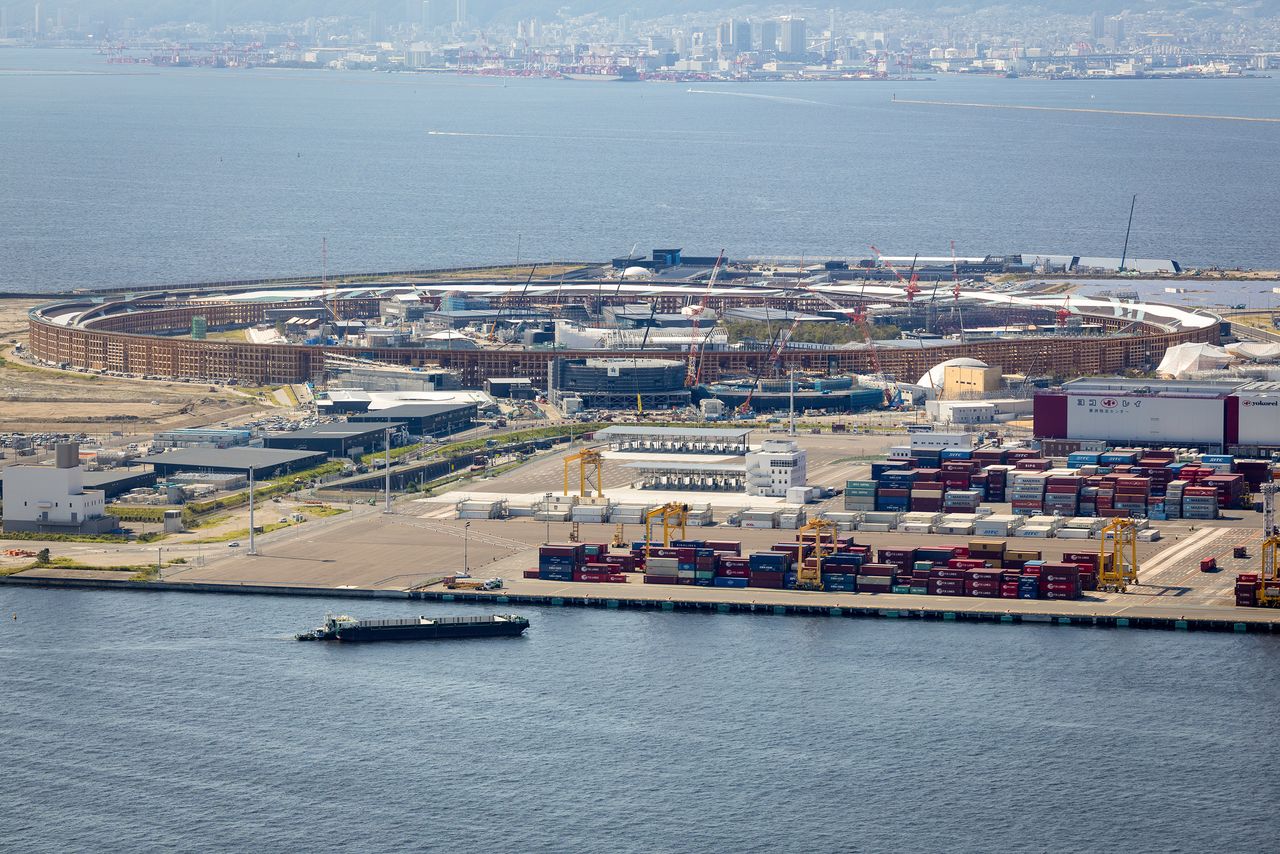
The Grand Ring, seen from the fiftieth floor of Sakishima Cosmo Tower. (© Hashino Yukinori)
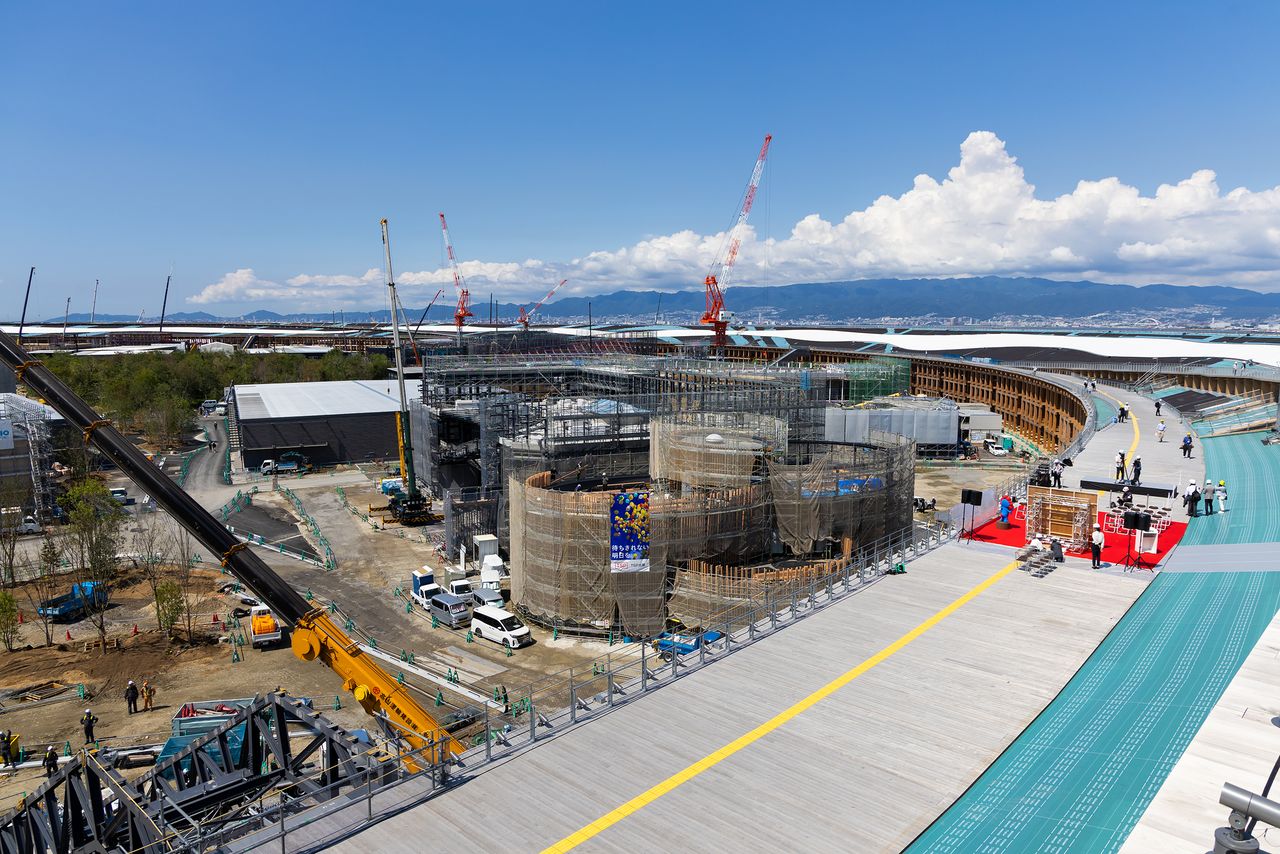
The 12-meter high “Ring Skywalk” will be planted with flowers and trees in time for the Expo. (© Hashino Yukinori)
The theme of the Expo—“Designing Future Society for Our Lives”—is embodied in both the “signature pavilions,” which are chiefly the work of Japanese artists, and the international pavilions, all of which are enclosed within the Grand Ring.
The 12-meter-high Ring Skywalk that encircles the site serves as both an entrance to the central area and a vantage point affording a good view of the venue. The ground-level Ring Ground Walk, meanwhile, will serve as an alternative route that lets visitors appreciate the beauty of the wooden structure, out of the weather and the sun.
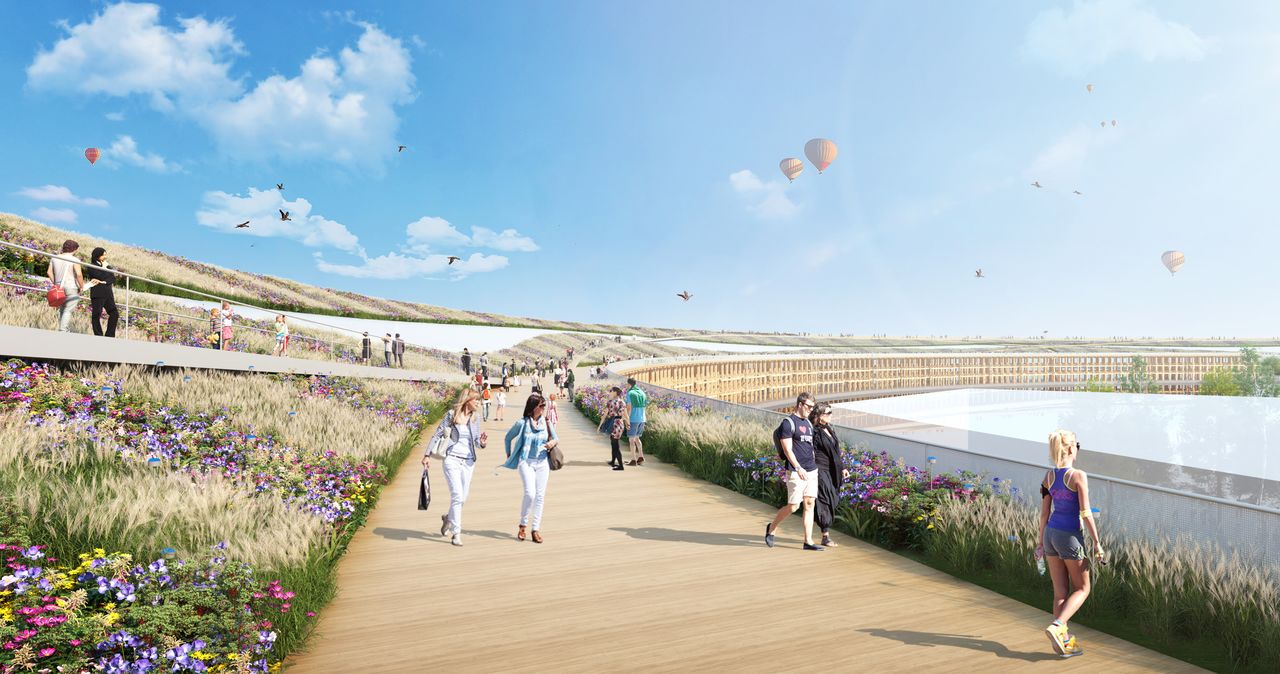
An artist’s impression of the Ring Skywalk. (Courtesy Japan Association for the 2025 World Exposition)
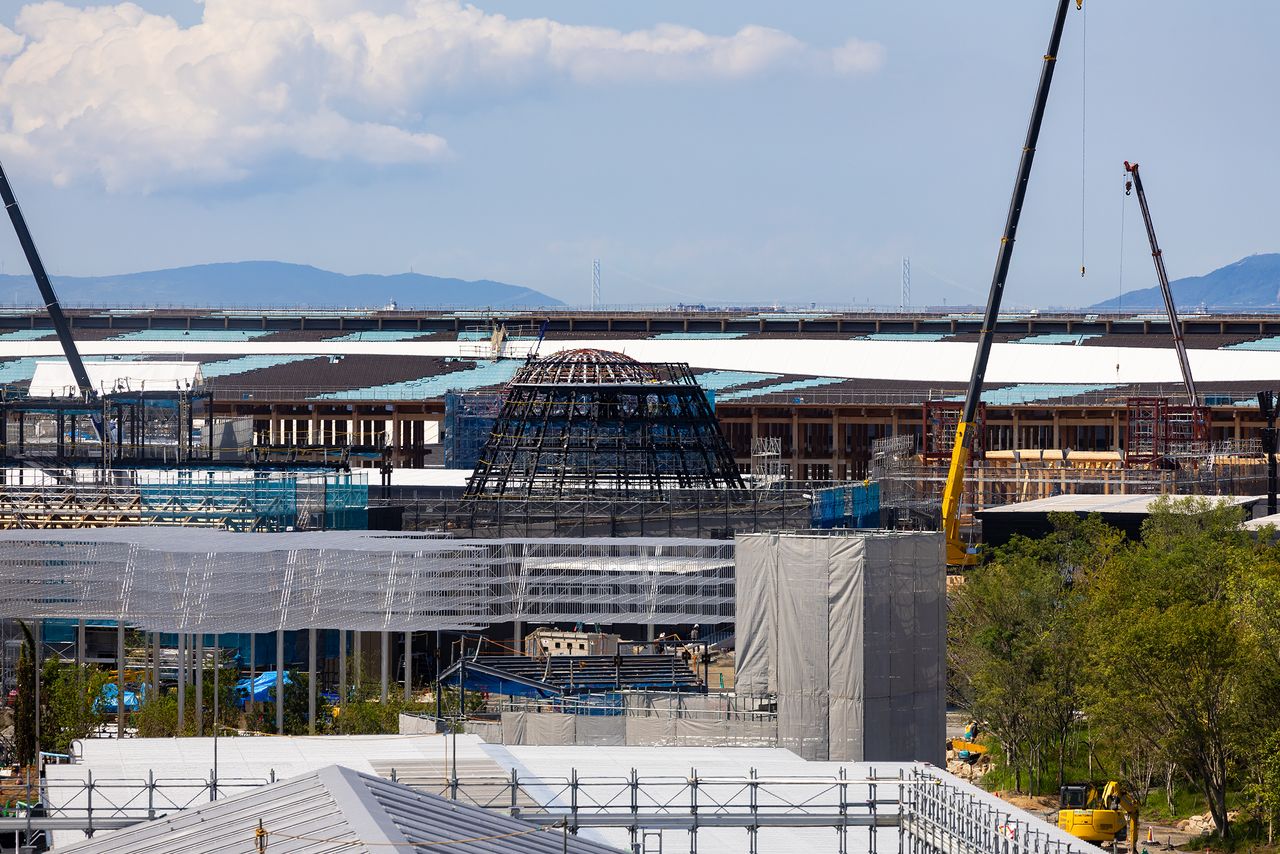
On a fine day, you can see as far as the Akashi Kaikyō Bridge (center-right background). (© Hashino Yukinori)
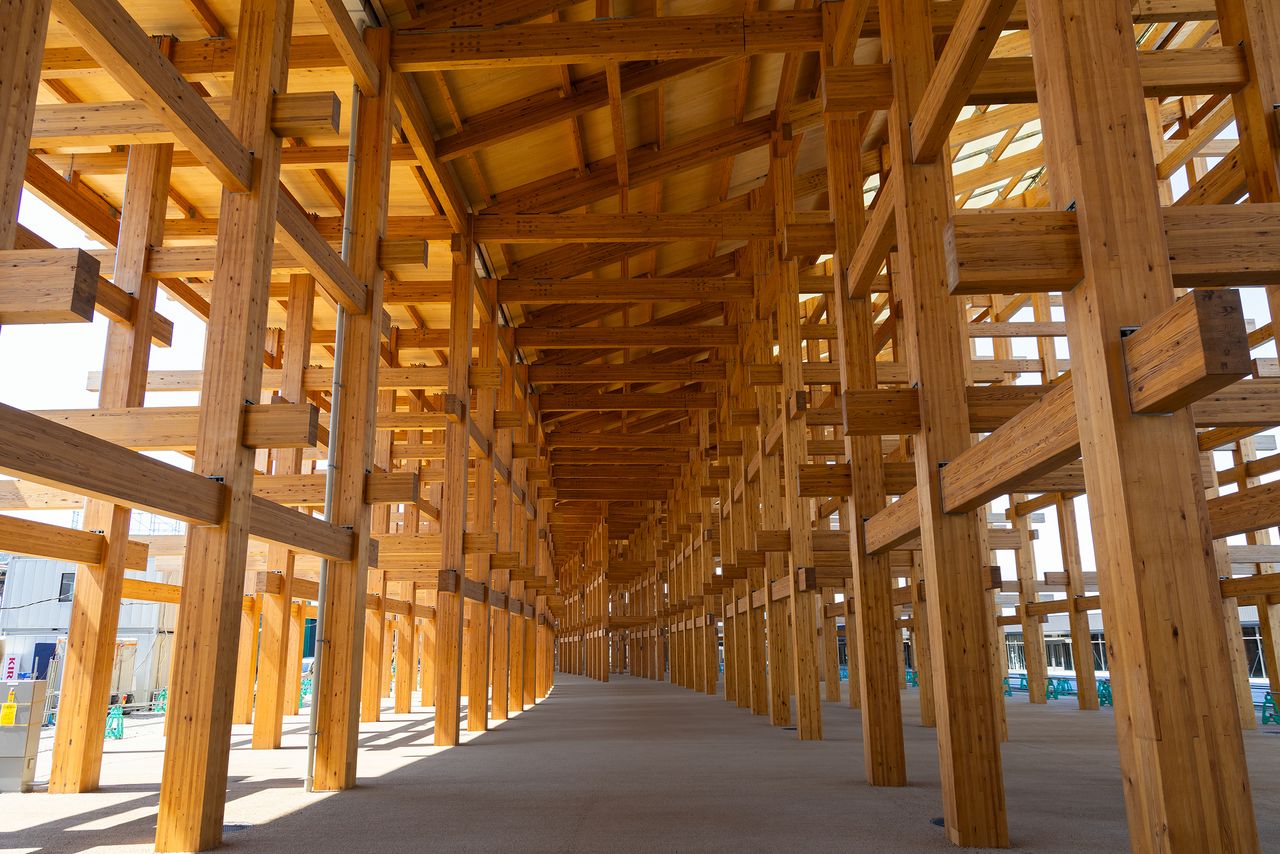
The ground-level Ring Ground Walk gives visitors a close-up view of Japanese artisanal skill. (© Hashino Yukinori)
Pavilions as the Main Focus
It took 27,000 cubic meters of wood and ¥34.4 billion to construct the ring. With the installation of its beams, columns, and floors complete, workers will now begin installing elevators, planting trees, and adding other final touches ahead of the grand opening.
While there were concerns as to whether some overseas pavilions would actually be built due to difficulties procuring materials and selecting contractors, work to complete these pavilions is now on track, with the locations of 157 pavilions now confirmed.
According to Fujimoto, “At Expo, people from diverse backgrounds and countries will come together under a common goal to create the future. The completion of the Grand Ring is the first step toward that.”
Fujimoto adds with emotion: “The Expo’s focus is not the ring, but the pavilions that the ring encircles. Each country will make its own, wonderful, contribution. We can now see the role that the ring will play in bringing this all together.”
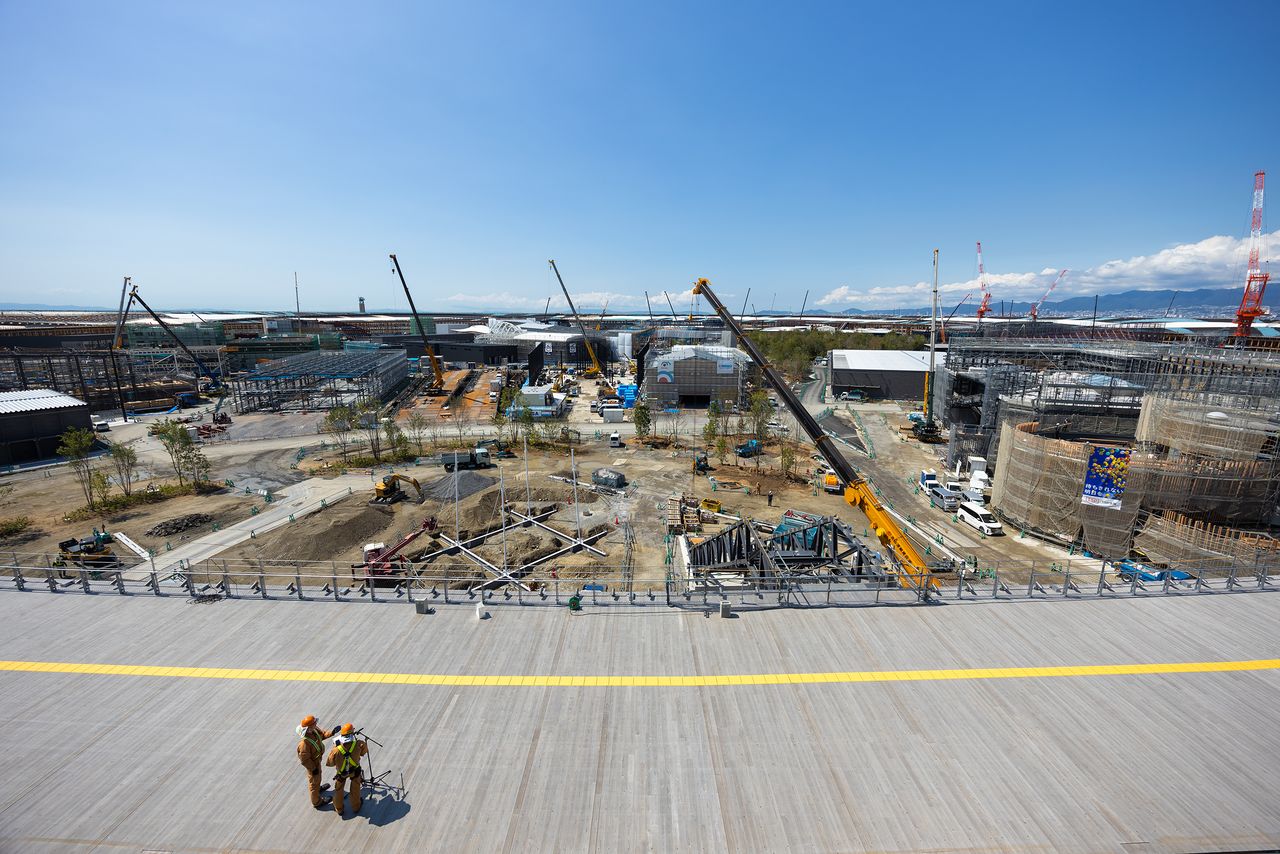
Within the ring, construction work on the pavilions is progressing at a clip. (© Hashino Yukinori)
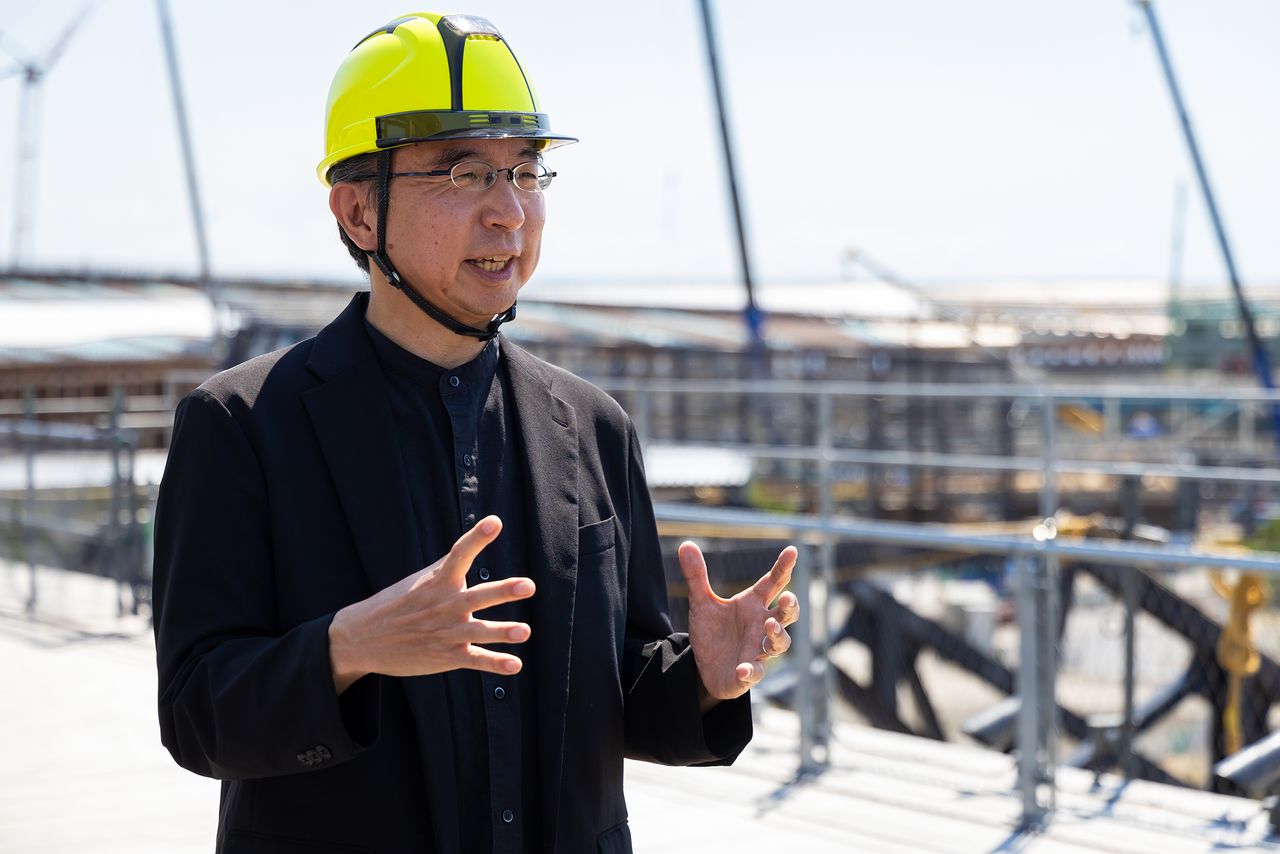
Design producer Fujimoto Sō can’t wait to walk a lap of the ring. (© Hashino Yukinori)
The Expo will run for 184 days, from April 13 through October 13, 2025, and will welcome a projected 28 million visitors. Once the Expo is over, the Grand Ring is scheduled to be dismantled. However, hoping that the timber can be reused, Expo organizers have invited local bodies, construction companies, and others to submit proposals for the reuse of the material, although the proposal remains at the exploratory stages, with details of logistics and costs yet to be discussed.
The iconic Tower of the Sun was also slated for demolition after the conclusion of the 1970 Osaka Expo. After ardent pleas from the local community, however, the authorities agreed to make the Tower a permanent fixture. Making the Grand Ring permanent would be more difficult economically, because it was only ever planned as a temporary structure. Governor Yoshimura has suggested that the ring may be preserved, though, and there are hopes that its legacy will be live on in some form or other.
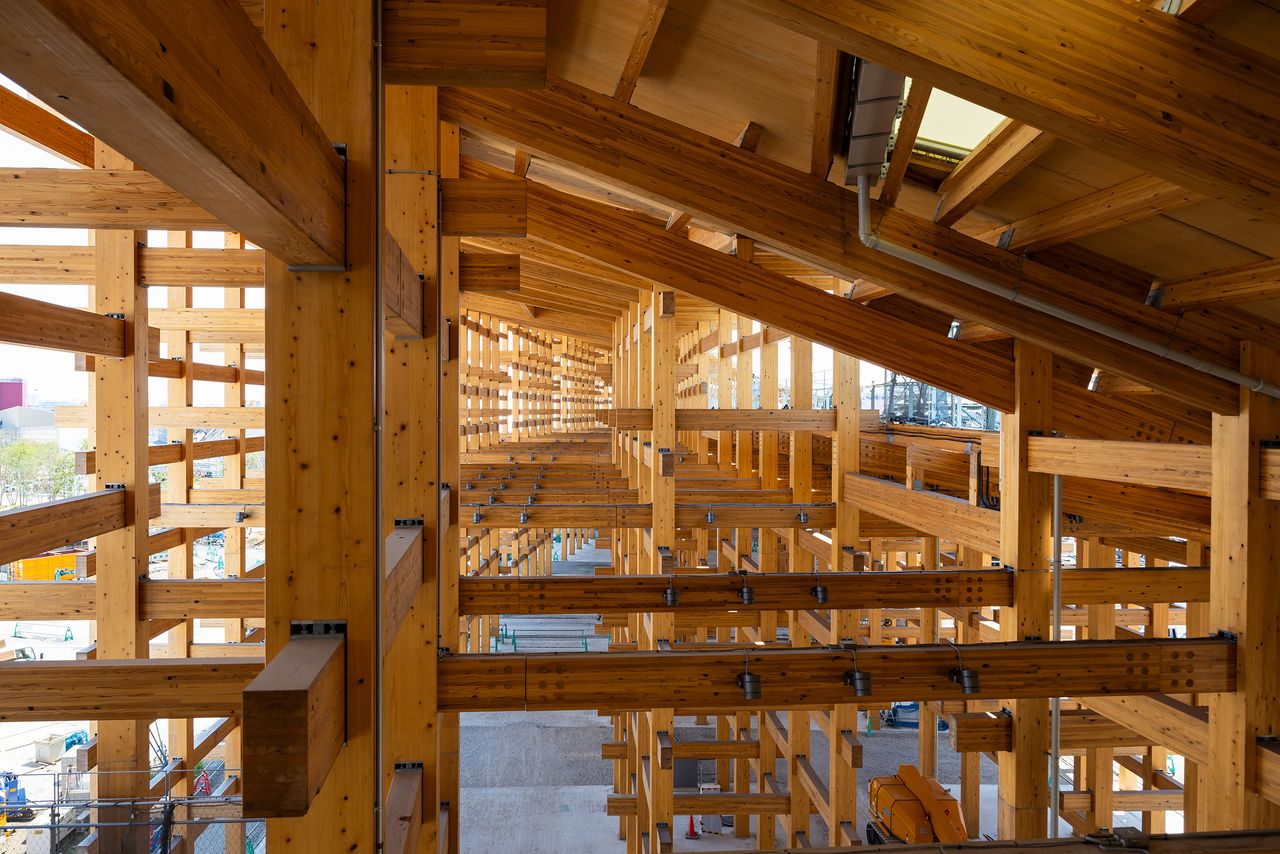
The section of the ring that hosted the completion ceremony was built with timber from Namie, Fukushima, an area that was hit especially hard by the Great East Japan Earthquake and tsunami. There are hopes that the timber will be reused after the Expo. (© Hashino Yukinori)
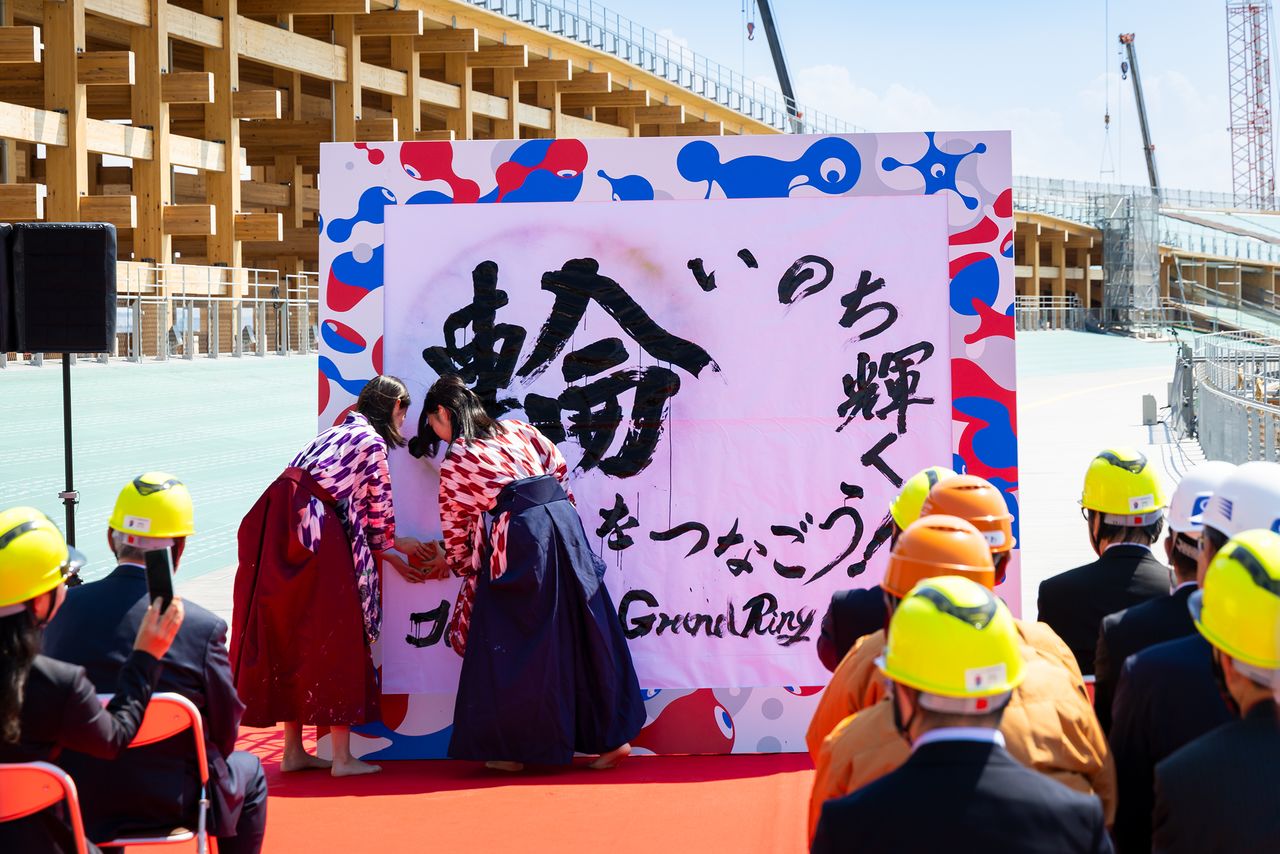
Students from Ritsumeikan University put on a calligraphy performance that invoked the Expo theme while referring to the completion of the ring. (© Hashino Yukinori)
(Originally published in Japanese. Banner photo: Ceremony attendees pose with calligraphy painted by students from Ritsumeikan University. © Hashino Yukinori of Nippon.com.)
